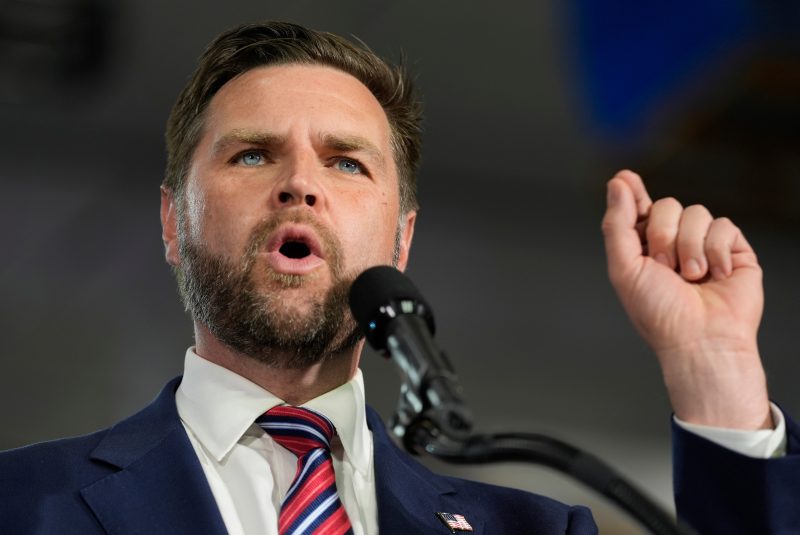
Vance Fires Back at Harris with a Fiery ‘Go to Hell’ Response Over Unfounded Cemetery Criticism
The recent clash between Vance and Harris over the issue of cemetery criticism has sparked a heated debate regarding the responsibilities of public figures and the boundaries of free speech. The controversy unfolded when Harris made remarks critical of the condition of a local cemetery during a public event, prompting Vance to publicly tell Harris to go to hell for her comments.
The incident raises important questions about the role of public figures in addressing sensitive topics and engaging in public discourse. While public figures have a platform to express their opinions, they also have a responsibility to choose their words carefully and consider the potential impact of their statements on others. In this case, Vance’s response to Harris’s criticism highlights the thin line between defending one’s beliefs and disrespectful communication.
Furthermore, the clash between Vance and Harris underscores the need for constructive dialogue and mutual respect in public communication. Disagreements are a natural part of public discourse, but personal attacks and inflammatory language only serve to escalate tensions and hinder meaningful conversations. Both Vance and Harris could have approached the situation with greater tact and respect for each other’s perspectives, fostering a more productive exchange of ideas.
The incident also sheds light on the power dynamics at play in public discourse, particularly when it comes to holding individuals in positions of authority accountable for their actions and words. As public figures, Vance and Harris are subject to scrutiny and criticism, but they are also expected to demonstrate maturity and professionalism in how they respond to such feedback. By resorting to hostile language and personal attacks, Vance’s reaction to Harris’s criticism raises concerns about his ability to handle criticism and engage in civil discourse.
In conclusion, the clash between Vance and Harris over cemetery criticism serves as a cautionary tale about the importance of respectful communication and constructive dialogue in public discourse. While disagreements are inevitable, public figures must strive to engage in a manner that upholds the principles of respect, empathy, and mutual understanding. By fostering an environment of open dialogue and respectful disagreement, individuals in positions of authority can set a positive example for others and contribute to a more inclusive and productive public discourse.
